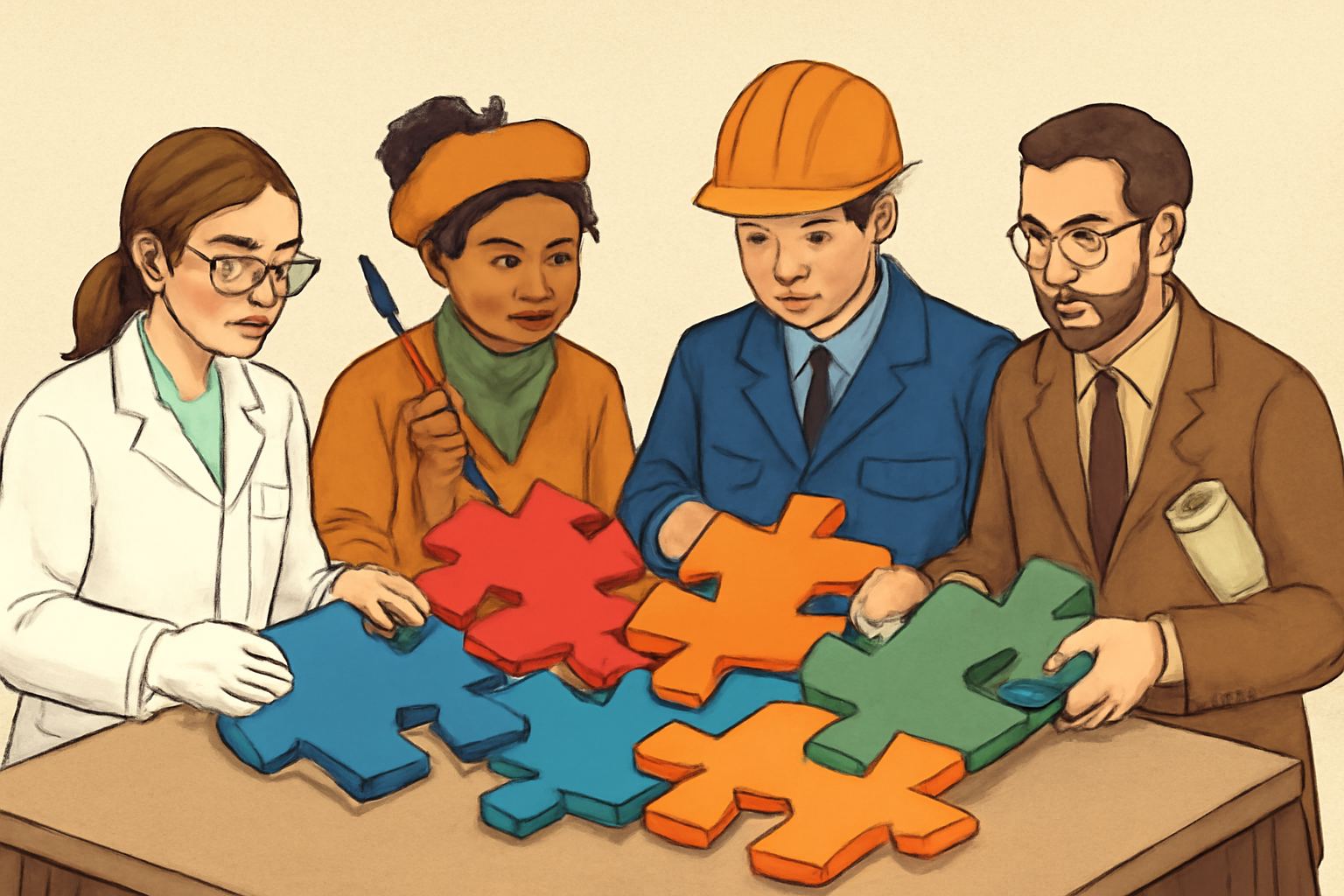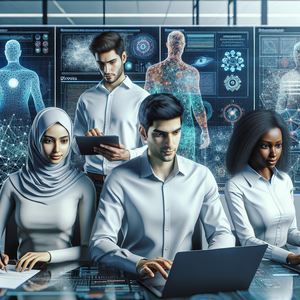Machine Learning Engineers in Unexpected Industries: How AI is Revolutionizing the Traditional

Traditionally, agriculture has been considered a hands-on, experience-driven field, seemingly distant from the world of data science and algorithms. Yet, in recent years, machine learning has ushered in a new era of “precision agriculture.” Engineers are building advanced algorithms that process data from drones, satellites, and soil sensors to optimize everything from irrigation schedules to pest control. Companies such as John Deere and startups like Blue River Technology are leading the charge. Blue River’s “See & Spray” technology, for instance, uses computer vision and machine learning to differentiate between crops and weeds in real time, allowing for targeted herbicide application. This precision not only cuts down on chemical use and costs, but also helps protect the environment. Machine learning engineers in agriculture grapple with noisy, incomplete, or highly variable data—unlike the more controlled environments of tech. They must work closely with agronomists and farmers to translate complex biological and environmental phenomena into effective models. Despite these challenges, the results are game-changing: higher yields, lower costs, and more sustainable farming practices.
Fashion: The AI Stylist
Fashion might seem rooted in creativity, intuition, and human touch, but machine learning is rapidly becoming the industry’s trendiest accessory. Today’s fashion companies are leveraging AI to analyze customer preferences, forecast trends, and streamline production. Retailers like Stitch Fix and Zalando employ teams of ML engineers to develop recommendation systems that analyze browsing history, purchase patterns, and even Instagram feeds to deliver personalized style suggestions. Virtual fitting rooms, powered by computer vision, allow customers to “try on” clothes using their photos, improving fit and reducing returns. Machine learning also enables brands to predict emerging trends, manage inventory, and minimize waste. By merging data-driven insights with creative design, engineers are helping fashion businesses become more responsive and sustainable.
Sports: The Science of Winning
Sports is another arena where data-driven strategies were once rare but are now essential. Machine learning engineers are providing teams and athletes with unprecedented insights, fundamentally changing how games are played, coached, and analyzed. In basketball and soccer, companies like Second Spectrum and Catapult Sports use ML to analyze player movements and game footage, uncovering strategic patterns invisible to the naked eye. In Major League Baseball, ML algorithms help teams identify undervalued talent and optimize line-ups—a trend popularized by the “Moneyball” approach. Technologies like Hawk-Eye in tennis use computer vision to make accurate line calls and analyze player tactics. AI isn’t just for the pros. Amateur athletes now use AI-powered apps for real-time feedback and personalized training, democratizing access to elite-level coaching.
Challenges and Opportunities
The influx of machine learning engineers into these traditional sectors is not without its obstacles. Many industries are slow to change, and engineers often face skepticism from those who fear technology may replace rather than enhance human expertise. Adapting ML techniques to noisy, domain-specific data, ensuring model interpretability, and navigating ethical concerns like data privacy are ongoing challenges. Yet these hurdles also create opportunities. As demand for machine learning expertise skyrockets across industries—a trend underscored by recent hiring data showing sharp increases in high-paying ML engineer roles—engineers with interdisciplinary skills are uniquely positioned to bridge the gap between tradition and innovation. Their work is not only lucrative, but also offers the chance to make a real-world impact.
The rise of machine learning engineers in unexpected industries highlights a powerful shift: AI is no longer the sole province of tech giants and startups. From nurturing crops to designing fashion and coaching champions, machine learning is quietly—and profoundly—redefining what’s possible in even the most traditional fields. For engineers seeking meaningful, unconventional careers, and for industries eager to reinvent themselves, the future holds immense promise. Machine learning isn’t just changing products; it’s transforming the very fabric of how the world works.
Precision Agriculture Machine Learning Engineer
John Deere, Blue River Technology, Corteva Agriscience, Climate Corporation
Core Responsibilities
Develop and deploy ML models for real-time crop monitoring, yield prediction, and disease detection using multispectral drone, satellite, and sensor data.
Collaborate with agronomists to translate complex environmental and biological variables into actionable algorithms.
Optimize resource use (irrigation, fertilizers, pesticides) by integrating predictive analytics into autonomous farming equipment.
Required Skills
Experience with computer vision, remote sensing, and time-series analysis.
Strong proficiency in Python, TensorFlow/PyTorch, and GIS tools such as QGIS or ArcGIS.
Familiarity with agricultural datasets and domain knowledge is highly valued.
Fashion Recommendation Systems Engineer
Stitch Fix, Zalando, Farfetch, H&M Group
Core Responsibilities
Design and maintain large-scale, real-time recommendation engines that personalize clothing suggestions based on user behavior, preferences, and social media activity.
Integrate multimodal data sources (images, text, purchase history) to improve fit prediction and reduce return rates.
Work closely with stylists, UX designers, and merchandisers to bridge data-driven insights and creative direction.
Required Skills
Expertise in collaborative filtering, deep learning (especially CNNs for visual data), and natural language processing.
Experience with A/B testing, model interpretability, and productionizing ML pipelines.
Understanding of fashion retail cycles and customer journey analytics is a plus.
Sports Performance Data Scientist
Catapult Sports, Second Spectrum, NBA/NFL franchises, Hawk-Eye Innovations
Core Responsibilities
Analyze large volumes of player tracking, biometric, and game event data to uncover patterns that inform coaching strategies and injury prevention.
Build predictive models for talent scouting, performance forecasting, and opponent analysis.
Collaborate with coaches, trainers, and video analysts to integrate insights into daily practice routines and match preparation.
Required Skills
Advanced proficiency in machine learning, time-series modeling, and computer vision for video analysis.
Familiarity with wearable sensor data, sports-specific statistics, and data visualization platforms.
Excellent communication skills to translate analytics into actionable recommendations for non-technical stakeholders.
Supply Chain Optimization ML Engineer (Retail & Apparel)
Zara (Inditex), Amazon, Nike, Uniqlo, logistics startups leveraging AI
Core Responsibilities
Develop algorithms for demand forecasting, inventory allocation, and logistics optimization in fast-moving consumer goods or apparel environments.
Integrate external data (weather, social trends, supplier status) with internal sales and stock data for resilient supply chain planning.
Drive sustainability initiatives by minimizing overproduction and waste via predictive analytics.
Required Skills
Background in operations research, statistical modeling, and reinforcement learning.
Proficiency with SQL, cloud-based data platforms (AWS, GCP), and optimization solvers.
Experience in retail or manufacturing supply chain environments is highly desirable.
Agricultural Robotics Software Engineer
Blue River Technology, Ecorobotix, John Deere, Agrobot, emerging agri-tech startups
Core Responsibilities
Design and implement autonomous navigation, perception, and manipulation algorithms for robots in farm environments (e.g., weeders, harvesters, seed planters).
Fuse sensor data (LIDAR, RGB/depth cameras, GPS) to enable robust operation in outdoor, unstructured settings.
Conduct field trials and work with hardware teams to iterate on system reliability and safety.
Required Skills
Strong experience with robotics frameworks (ROS), real-time systems programming (C++/Python), and embedded ML.
Knowledge of agricultural workflows and environmental variables affecting robotics deployment.
Ability to prototype and test in variable, sometimes harsh conditions.


